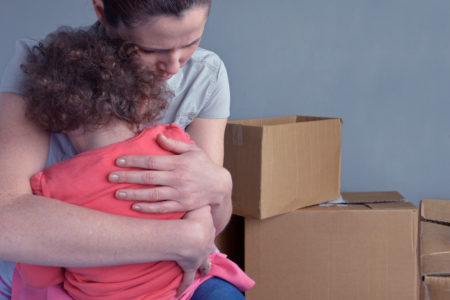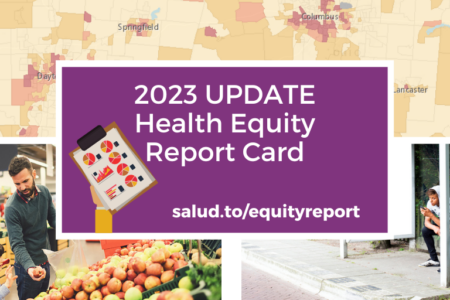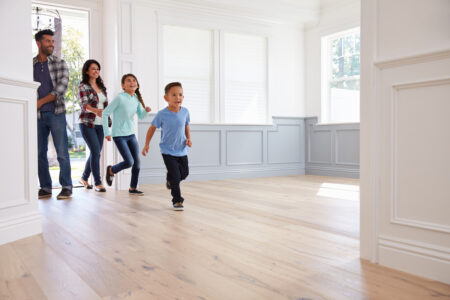
Share On Social!
The COVID-19 pandemic is affecting health equity in many ways, including homelessness, evictions, and affordable housing options.
Low-income workers, the uninsured, those with unstable housing, and immigrant communities will bear the brunt of this crisis.
Many U.S. cities were dealing with a homelessness crisis long before this outbreak. Now, the escalating pandemic has created a catastrophe threatening thousands of lives.
Affordable Housing Crisis during COVID-19
Millions of Americans face housing cost burdens. Over half a million sleep on the streets any given night, according to a recent report.
Worse, countless people and families pay more than they can afford to keep a roof over their heads every month. The coronavirus outbreak is a public health emergency that will exacerbate that stress, causing millions to face substantial financial loss. 56.9% of Latinos are “housing cost burdened,” spending about a third of their income on housing.
Affordable housing advocates are calling on Congress and Trump Administration to do more to protect the fragile housing options for low-income workers who are at heightened risk of losing their homes as the COVID-19 public health crisis.
Significant changes the affordable housing advocates are asking during COVID-19 outbreak include:
- Suspension on evictions, including on foreclosures and evictions of both public and private housing, and utility shutoffs.
- National mortgage and rent holiday which includes passing legislation to reduce rents and mortgage payments during the crisis.
- $200 billion Housing Security Fund to provide lease and payment assistance, funding for expanded services for people experiencing homelessness.
Major Cities in Action for Housing
Wednesday, the San Diego City Council unanimously voted to freeze residential and commercial evictions tied to the escalating outbreak.
Still, tenants must establish a “substantial decrease in income or medical expenses” caused by the outbreak to qualify.
Several other cities in the Bay Area are passing eviction moratoriums.
“We need to protect our most vulnerable residents from eviction,” City Council President Georgette Gomez told the San Diego Union-Times.
Gov. Doug Ducey in Arizona, made an executive order on March 24, 2020, to bar police officers and constables from carrying out eviction orders until July 23, 2020.
In Arizona, evictions also can be avoided if someone else living in the home is diagnosed with the virus or if they have an underlying condition.
“Arizona is already experiencing a high rate of evictions due to a high cost of living, and COVID-19 is only going to exacerbate the issue,” wrote the mayors of Tucson, Winslow, Flagstaff, Somerton, and Tolleson.
 The Austin City Council in Texas, on March 23, 2020, proposed to expand protections against eviction, creating a 60-day grace period before removal due to nonpayment.
The Austin City Council in Texas, on March 23, 2020, proposed to expand protections against eviction, creating a 60-day grace period before removal due to nonpayment.
“No one should be kicked out of their home or business during a pandemic,” Austin city council member Greg Casar, said in a press statement.
This issue is even gaining headway at the national level.
President Donald Trump recently ordered the Department of Housing and Urban Development to temporarily suspend “all foreclosures and evictions” amid the coronavirus crisis.
There will “immediate relief” for renters and homeowners will last through the end of April, Trump said during a press briefing at the White House.
Many experts say that Trump’s coronavirus eviction freeze won’t be enough for housing.
“HUD’s proposal only impacts a minimal amount of people. We need big-scale solutions,” Andrea Shapiro, of the Metropolitan Council on Housing—a New York-based housing advocacy organization—told Fortune.
Understanding the affordable house crisis is critical in managing the current evolving pandemic like coronavirus 2019 (COVID-19).
Many housing advocates suggest that many more cities and states should step in to stop people from losing their homes.
How Does COVID-19 Impact Housing for Latinos Families?
Latinos account for 18% of the U.S. population and will soon comprise 30% of all youth, making them key to the nation’s future health and economy.
Yet, Latinos experience disproportionate affordable housing disparities and inequities compared to non-Latino whites.
 Latinos have a higher risk of eviction, and more than half of Latinos (54%) rent their home. That’s nearly twice as much as whites (28%), according to Pew Research Center.
Latinos have a higher risk of eviction, and more than half of Latinos (54%) rent their home. That’s nearly twice as much as whites (28%), according to Pew Research Center.
According to our Salud America! research review, an increasing number of Latinos are burdened by high housing costs and evictions. This displaces them from urban centers near public transport to the fringes of urban areas, where transportation services and employment are more difficult to access.
The coronavirus outbreak makes it harder for Latinos living in this affordable housing crisis.
Economists estimate that nearly three million Americans could lose their jobs by summer. Many of these are low-wage workers in service industries with little savings to get through a recession, adds to the problem.
Learn more about the link between health and housing among Latinos by following our work on healthy communities and houses.
Learn more about the coronavirus outbreak and its health implications.
Explore More:
HousingBy The Numbers
56.9
percent
of Latinos are "housing cost burdened"



